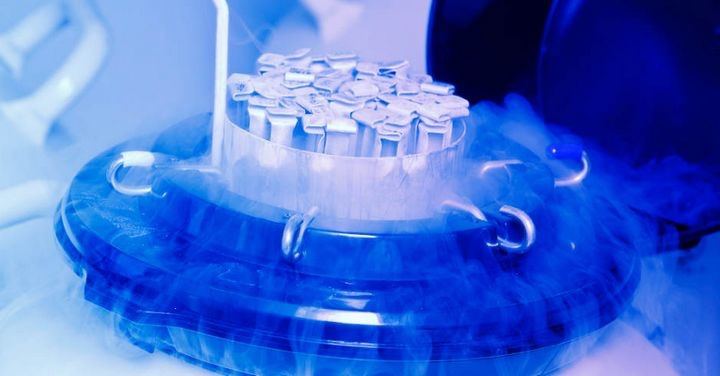Egg Freezing
The decision to freeze your eggs is always one fraught with emotion: why do I need to think about this at all? Is it expensive? Am I doing the right thing when there are no guarantees?
We guide you through the blurb, explain the facts, and most importantly provide an environment for your treatment where you feel comfortable and supported.
More and more women are thinking of freezing their eggs these days. If I had my way, all women would have free egg freezing at the age of 30 if they were still single!
The rationale behind the concept is that a woman is born with a certain number of eggs which accumulate genetic defects and diminish in number with age so that by the time a woman is 42, approximately 70% of her reduced number of eggs, will be genetically abnormal. Freezing eggs arrests that accumulation of genetic defects. Women are delaying having children for various reasons these days, but the main reason is that they have not yet settled in a stable relationship, and the unfortunate knock on effect is that infertility rates are rising.
I have been freezing eggs for my patients since 2009 when the methods changed to make the process much more successful. Since then the freezing techniques have continued to improve to the extent that 95-98% can be used for treatment after thawing. The potential of a frozen egg is now regarded as almost that of a fresh one. The success rate of frozen eggs is dependent on the egg quality and of course many other factors that can influence the chance of a pregnancy, but I have had several babies born using eggs frozen for my patients.
Eggs are not tested for quality when they are frozen at the present time, but when they are thawed and fertilised, the embryos can be tested for genetic problems before they are replaced in the womb. Using frozen eggs always requires a form of IVF called ICSI, where the sperm is injected into the egg. Only mature eggs are frozen in most circumstances, but on occasion, and certainly for my cancer patients before they have their chemotherapy or radiotherapy, I will also store any immature eggs that are collected, although it is estimated that only half of those would have the potential to mature ‘in vitro’ and be able to be fertilised. The success of an egg freeze is still very dependent on the laboratory where it all happens. Worldwide survival and pregnancy rates vary significantly. Our laboratory has proven successes and an excellent thaw survival rate.
People wonder how safe their eggs are in storage. Well all patients at CARE London where mine are stored, have a unique barcode which matches the egg to the patient (so no mix ups happen), and they are stored in liquid nitrogen at -195C, in sealed containers that are alarmed and monitored 24/7. In the event of a fire they can be safely moved to another nearby unit. If you move to the other side of the world, you can safely fly your eggs out to be used locally (although we prefer you to come back to our excellent IVF laboratory for treatment!).

